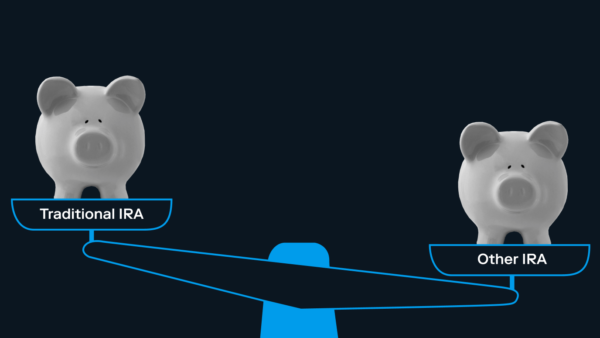Nov 30, 2020
Shopping for the Holidays on One Income? Here’s How
If you or your partner has been laid off, it’s time to get creative.

If your household income has been reduced because of the pandemic, you might find it difficult to buy gifts for the holidays this year.
Nevertheless, it’s important to try to stay within your budget even if it’s smaller. That can help you avoid the holiday debt hangover, when you rack up charges on gifts, gatherings, and other holiday-related expenses, only to face a big outstanding balance in the new year. If you’ve suffered a pay cut or job loss this year, the debt hangover could be far heftier.
Here are some suggestions for planning holiday spending without racking up debt:
Create a list and cut it in half. It’s a tried-and-true tactic for a reason. Without a concrete plan, spending on those Amazon purchases for friends and family, and on strings of festive lights and sprigs of mistletoe, can add up quickly.
Instead, if your income has been reduced, consider creating a holiday budget for roughly half the number of folks you originally intended to include. Have 20 people to shop for? See if you can trim down that list to 10.
While it may be difficult to only purchase gifts for one set of cousins, parents, siblings, consider batching your gifts so there are fewer to buy. Do you really need to buy a gift for your brother, wife, and three kids? Or can you come up with a gift basket with goodies that appeal to the entire family? Instead of spending $120 for a family of five, you could cut it down to, say, $40.
Consider cutting back on expenses to save for the holidays. You may have already adjusted your budget if your household income took a hit. Aim to spend less than you earn.
But it couldn’t hurt to comb through your spending again, and see what can be cut or reduced during the last months of the year. Any savings can be reallocated toward holiday expenses. For example, you can bring down the cost of your gas bill. According to the U.S. Department of Energy, a household can save up to 10% on its bill simply by dropping the heat 7 to 10 degrees for eight hours a day. “A 1-degree drop in temperature will typically result in 1% savings off your annual bill,” says Joelle Spear, a certified financial planner and partner with Canby Financial Advisors in Framingham, Massachusetts.
Similarly, If you’ve already looked into cutting back on your monthly and yearly subscriptions, such as magazines, streaming services, or beauty products, don’t forget the ones renew automatically through your PayPal or your phone’s App store, suggests accredited financial counselor Brittany Davis, founder of Brittany Davis & Co. in Memphis, Tennessee.
“The worst part is that these automated payments are hidden under so many layers of clicks,” Davis says, who specializes in budget management. “Just spend the extra 10 or 20 minutes, and you could potentially save $50 extra dollars or more per month.”
Go Secret Santa. There’s no need to go berserk and buy presents for everyone you know. By taking the Secret Santa route, where your identity remains anonymous and you purchase a gift for just one person in a group, you can potentially save money. “It might seem a little old-fashioned, but pull names and buy a gift for the person you’re assigned to,” says Davis. “The fun is in the secrecy — the gift isn’t just the surprise, the gifter is a surprise as well.”
Think about a temporary side hustle. If you’ve cut back on expenses as much as you possibly can, consider looking into some seasonal work. Look for gigs that are within your realm of expertise, that don’t require a lot of equipment or supplies. Also, consider side hustles that tend to be in higher demand during the holidays and might offer higher than average pay.
Ramp Up Your Savings Now
Set up a separate savings account for holiday spending. The easiest thing you can do is to set up a separate bank account just for holiday spending, explains Davis. After all, money you don’t see is money you don’t spend. “Use the power of tech and automation to your advantage,” says Davis. “If you send the holiday money to a separate savings account, it’s more likely to not be spent. Resist the temptation to spend from it by remembering who/what it’s for.”
Auto-save for the holidays. Start putting your money in a separate savings account as soon as possible, recommends Davis. ”If you’re still gainfully employed or are side hustling, take it a step further by setting up an auto-transfer from your bank each time to receive a paycheck,” she says.
Keep it going. You can also set a stop-transfer deadline, but Davis suggests you keep it going. After all, the holidays will be back in 2021. If you need that money for other expenses, keep auto-saving, but switch it so that the money goes toward a general emergency fund.
Saving with Stash. You can set up a partition within your Stash account specifically for holiday gifts and set a reminder for yourself to add more money to that partition when you get paid.1 Or if you’ve set up Direct Deposit, you can automatically add money to Stash for your holiday shopping partition with each paycheck. Plus, with Stash’s Set Schedule, you can make regular, automatic investments in your portfolio so that you’re not forgetting your long-term investing.
1Money moved into a partition must be moved back to the bank account available balance to be used and does not earn interest.
Stash does not offer an interest-bearing savings account.
Related Articles

15 Largest AI Companies in 2024

The 12 Largest Cannabis Companies in 2024

What Is a Traditional IRA?

Saving vs. Investing: 2 Ways to Reach Your Financial Goals

How To Invest in the S&P 500: A Beginner’s Guide for 2024

Stock Market Holidays 2024





